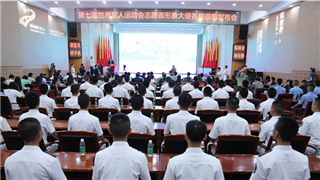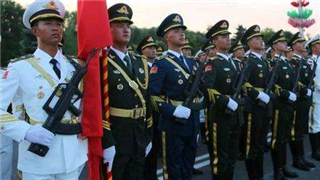
For 36 years, Zhang Shuangbing, a retired village teacher in China's Shanxi province, has been recording the brutal experience of "comfort women". Now, for the first time outside of China, he is sharing the first-hand stories they told him.
Invited and sponsored by the Comfort Women Justice Coalition, a San Francisco-based advocacy group, Zhang told local activists on Thursday about his painstaking efforts to preserve the history of "comfort women'' and pursue an apology from the Japanese government.
"Comfort women" is a euphemism for the girls and women kidnapped from 13 Asian countries and forced into sex slavery by the Japanese military during WWII.
Some 400,000 women were forced to be "comfort women" for the Japanese army, and nearly half of them were Chinese, according to the Research Center for Comfort Women at Shanghai Normal University.
Zhang has spent more than 30 years visiting and interviewing over 100 "comfort women." He even helped 16 victims sue the Japanese government in several cases since the 1990s, asking for apologies and compensation. All have failed.
When asked to describe the life of "comfort women'' survivors, he used the word "hardship".
"I remember there was a woman who was so sick that her whole body swelled. She couldn't even fasten the buttons on her shirt. There was a small bowl of millet porridge. I guess it was given by a neighbor. It had gone bad in the hot summer weather," said Zhang.
"Some of them died of starvation," he added. "Many of them had no children. One-fifth of the survivors I talked to suffered from mental illness and a quarter of them were left infertile."
Zhang, 65, had taught at a primary school in a rural mountain village in Yuxian county, Shanxi province, until he retired five years ago. In his village, what happened to those local girls after they were kidnapped by the Japanese soldiers has long been a well-known secret.
In 1982, the 29-year-old Zhang decided to research the issue and started interviewing "comfort women'' survivors in his spare time.
Since then, he has found 300 to 400 survivors, mostly in Shanxi province, and persuaded 127 of them to break decades of silence and talk about their painful past.
He also accompanied 16 of them to testify as victims and witnesses to the Japanese military's wartime atrocities in Japan. But they lost the lawsuit against the Japanese government.
"Can you imagine how hard it was for these women who lived in small villages in China to sue Japan, to take on the superpower, and to tell the stories to the world?" said Julie Tang, co-chair of the Comfort Women Justice Coalition, which is composed of more than 30 organizations with over 300 members of diverse ethnic backgrounds.
"I know they lost the suit, but I think there's a strategy to it. It's important to win, but when they lose, they are able to tell the story, which I believe would be legendary and would live on forever," said Tang, a retired San Francisco Superior Court judge.
In August, the last of the 127 women Zhang had interviewed, Cao Heimao, died at the age of 97. Zhang said he still remembers what Cao said three years ago: "'Win or lose, I'm going to die. I won't last long. You young people should guard our door well. You can't let others kick our door open as they wish.'"
Cao's words encourage Zhang to continue the fight. "As I promised those women to help them sue Japan, I feel the weight of responsibility. I will keep going, though every step is a struggle," he said.
On Saturday, the Comfort Women Justice Coalition presented an award to Zhang for his contribution to seeking justice for "comfort women''.
"We really admire the kind of integrity, the kind of passion he showed to the movement and also toward each and every one of the comfort women survivors," said Tang.











